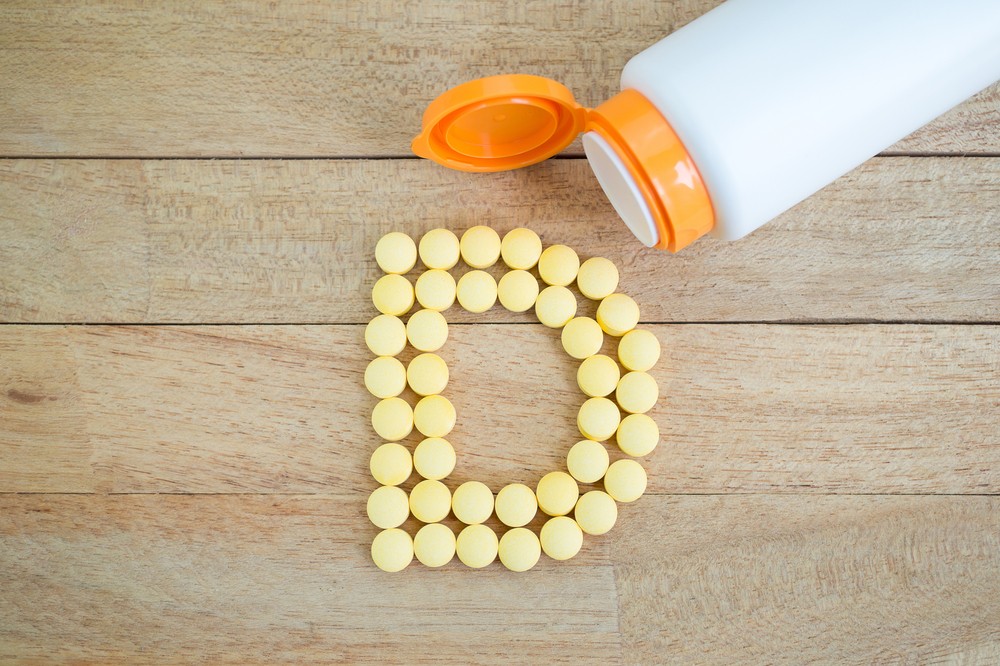Popular Reads
Top Results
Can't find what you're looking for?
View all search resultsPopular Reads
Top Results
Can't find what you're looking for?
View all search resultsMore evidence that lack of vitamin D is linked to COVID-19 severity
Change text size
Gift Premium Articles
to Anyone
 The researchers point out that many studies have already shown that having a sufficient level of vitamin D is beneficial for health, suggesting that vitamin D could play a role in boosting the body's immune response, supporting bone and muscle health and suppressing inflammation. (Shutterstock/File)
The researchers point out that many studies have already shown that having a sufficient level of vitamin D is beneficial for health, suggesting that vitamin D could play a role in boosting the body's immune response, supporting bone and muscle health and suppressing inflammation. (Shutterstock/File)
N
ew European research has added to the growing body of evidence which suggests that a vitamin D deficiency could be linked with developing a more severe case of COVID-19.
Carried out by researchers at Trinity College Dublin, Ireland, and the University of Liverpool, UK, the new study looked at 117 countries which had 150 or more COVID-19 cases to see how the virus affects different populations in different ways.
The researchers gathered data on people aged 65 and over, each country's population density, the latitude of the capital city and air pollution levels.
Their findings, published in the British Medical Journal, showed that the proportion of older people in each country strongly affected COVID-19 mortality rates -- for every one percent increase in the proportion of people aged 65 and over, the researchers estimated that there was an increase of 13 percent in mortality rates.
After taking into account age, latitude also remained a significant factor in higher mortality rates, with the researchers estimating that there is a 5 percent increase in death rates for each degree further north the country is located, above 28 degrees north. Above this latitude, say the researchers, people are often not exposed to a sufficient amount of ultraviolet B exposure, found in sunlight, to maintain normal vitamin D blood levels through winter and spring.
The density of a country's population was not significantly linked with mortality, and perhaps surprisingly, pollution was negatively associated.
The researchers point out that many studies have already shown that having a sufficient level of vitamin D is beneficial for health, suggesting that vitamin D could play a role in boosting the body's immune response, supporting bone and muscle health and suppressing inflammation.
The evidence that a deficiency of vitamin D is linked with COVID-19 is now also growing. Although the link is not yet confirmed, the researchers recommend taking a daily supplement of 800-1000 International Units (20 -25 micrograms) daily to ensure normal vitamin D blood levels, especially for those who have a greater risk of deficiency, such as people with darker skin or those who spend a lot of time indoors.
"Our group is cautious about ascribing a causal association in advance of results from vitamin D supplementation studies which are ongoing. However, given the high prevalence of vitamin D deficiency in many northern latitude countries, the reduction in outdoor physical activity during COVID, and the safety of vitamin D, public health bodies in Ireland and UK are recommending that older persons, those who are mainly indoors and those from other high risk groups such as BAME, should take regular supplements," said study author Professor Rose Anne Kenny.
Co-author Professor Jon Rhodes also added that, "Vitamin D is an unusual vitamin -- it is a hormone and we get most of it by the action of ultraviolet light on cholesterol in the skin. Unless you live in a sunny country or eat a very large amount of oily fish you are quite likely to need supplements to maintain a normal level."










